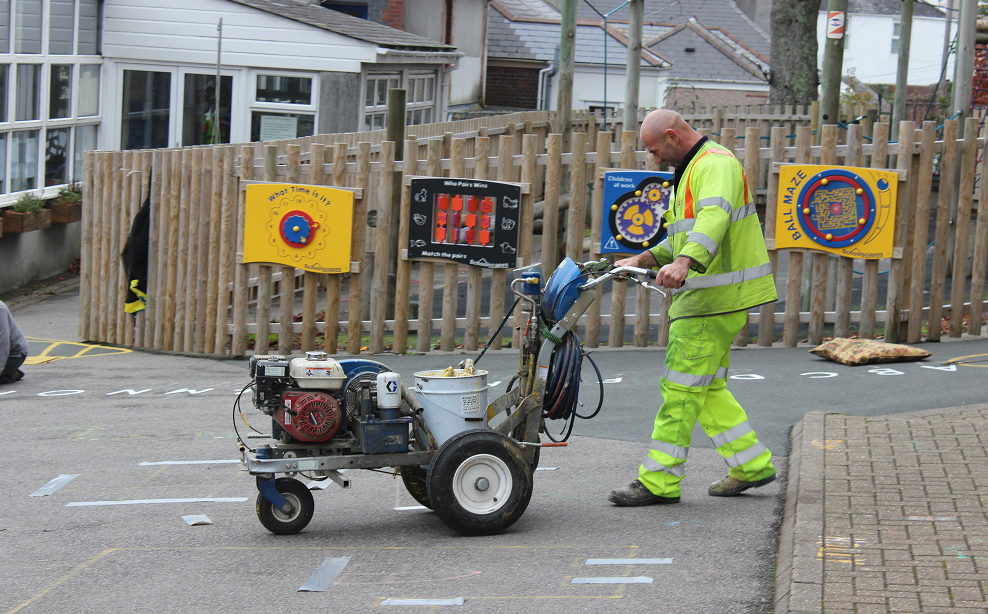Kier Highways considerately overcame light and noise pollution issues in South East Cornwall
Kier Highways is a division of Kier Group, employing 1,600 workers in the areas of civil engineering, highways, structural and road safety engineers, project managers, quantity surveyors, tunnel specialists, geotechnical engineers, environmentalists and a team of highly skilled operatives.
Kier undertook a 24/7 highways maintenance project, operating 24 hours a day, 365 days a year. Based at the Notter Bridge depot in Saltash the operations were carried out under the Highways England Area 1 Managing Agent Contractor (MAC), a specific type of longer term maintenance agreement.
The depot has 22 people working from it, including operatives, supervisors and office-based staff, covering a range of disciplines, including, highway maintenance, traffic management, winter maintenance, design, environmental work and delivery of schemes.
Also located at the same depot is Cormac, a local authority highway maintenance contractor which operates a training centre from the base.
A major consideration for the project has been light and noise pollution issues to local residents and businesses in the area, as the project operates all year round. Also, the River Lyhner forms part of the boundary to the depot and this in turn flows into the River Tamar and out into the Plymouth Sound, so there is a big focus on pollution-prevention as part of the depot strategy.
Here are some examples of best practice initiatives carried out by Kier Highways:
- Information boards were erected and letters delivered to individual homes when any road works were taking place that would affect members of the public.
- Parish councils were notified about works well in advance to enable them to inform local communities as appropriate.
- As their network ran through several villages and towns the requirement to notify those affected needed to be considered on a larger scale. For example, up to 400 letters were delivered in advance of works to homes backing onto the A38 Plymouth Parkway.
- Regular meetings were held with stakeholders, including the local authorities and emergency services, further ensuring that any disruption to members of the travelling public was kept to a minimum.
- When required, work was carried out overnight and, with the area being a holiday destination, school holiday periods were avoided.
- Consultation with local businesses was carried out and, where possible, works were undertaken outside of their opening hours.
- To bring lasting value to the community, the team was involved in a number of initiatives to enhance the local neighbourhood. Operatives and staff from Kier Highways installed new seating and activity boards for Hyde Park Infants School in Plymouth and re-marked their playground along with supply chain partner, WJ Roadmarkings.
- Poppy planting took place on the A38 Carminow roundabout for the World War I centenary commemorations, as well as managing traffic to make this possible.
- Donations raised from reporting their safety observations were presented to both the Cornwall and Devon Air Ambulances. The company donated £5 for each observation recorded and each charity received a cheque for £1500.
- Following the loss of Cornwall Air Ambulance’s four wheel drive vehicle, Kier Highways took the display trailer to events for them.
- Safety was taken seriously and to raise awareness of the dangers present every member of the workforce was required to attend serious road traffic collisions to personally witness the impact of highway accidents. Members of staff were then offered Trauma Risk Management (TRiM) – a welfare-led programme intended to monitor personal responses to serious accidents. This was carried out by trained in-house practitioners at the Notter Bridge depot.
Kier Highways addressed and improved their working practices through:
- ED and I (Equality, diversity and inclusion) groups compromised of operatives and staff
- Staff suggestion boxes
- Bupa helplines, regular health checks
- Trauma Risk Management (TRiM) practitioners.



